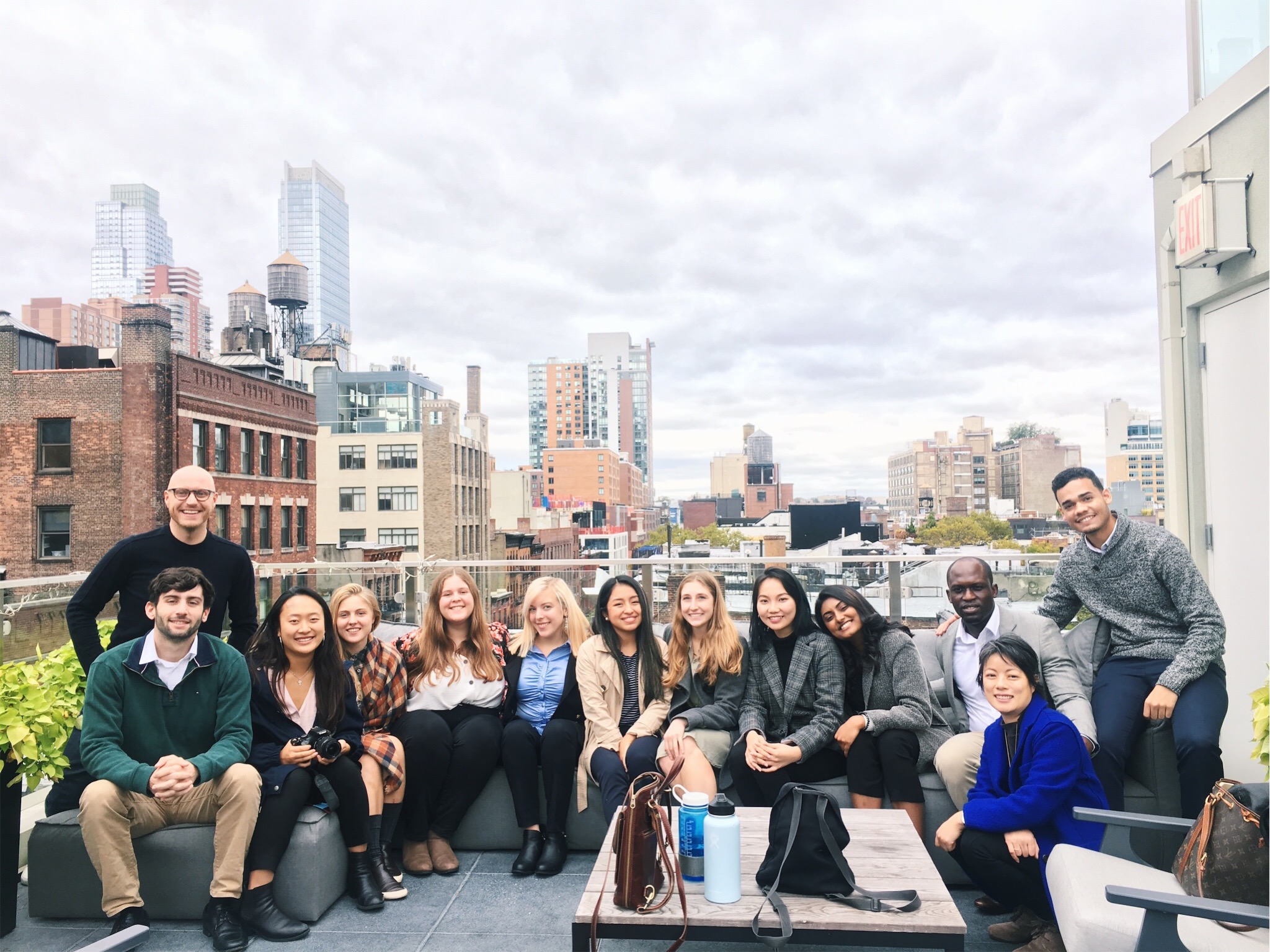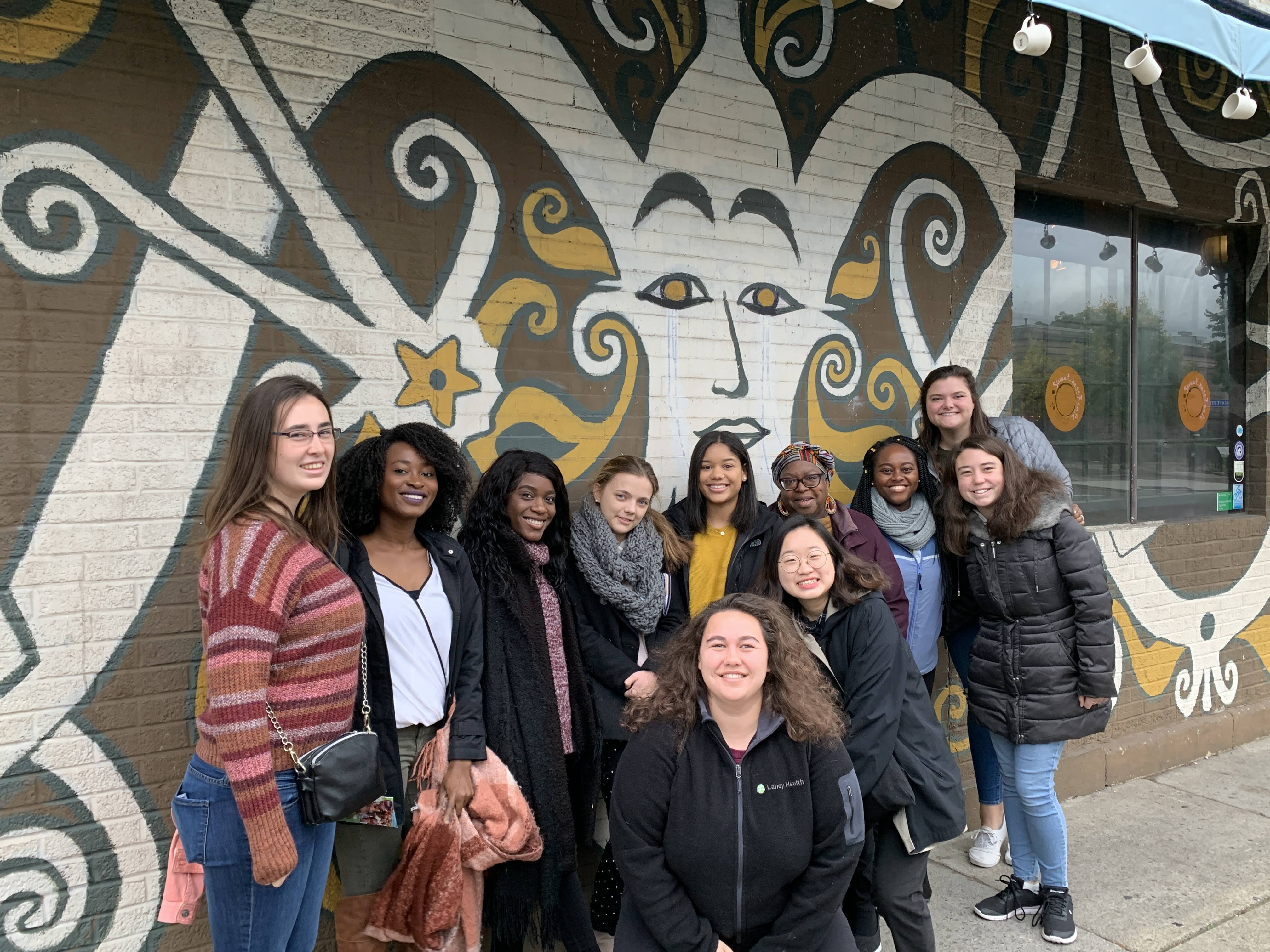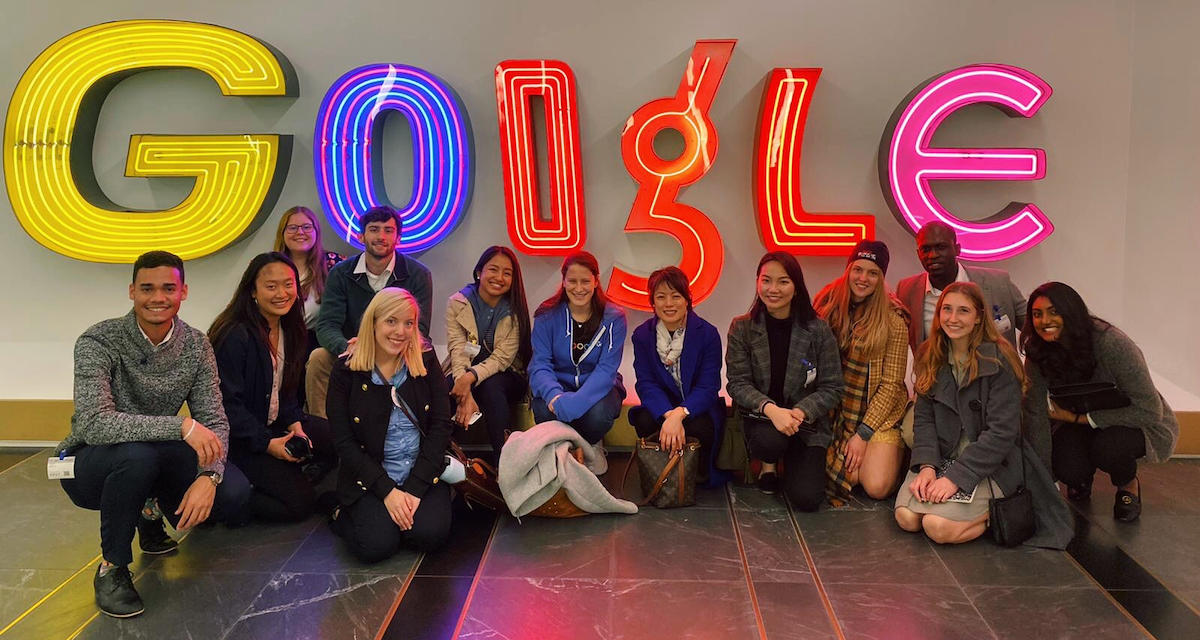Accelerating Innovation through Immersion
For some students, quad break is truly that—a break from studies, a chance to regroup. But for 26 students this year, quad break was a chance to immerse. Through the Center for Entrepreneurial Leadership and the Global and Experiential Learning Office, students spent three days in mid-October on immersion trips in New York state, some learning about entrepreneurship and social enterprise in NYC, and others about refugee ministries in Buffalo.
Themed around a topic or industry, immersion trips are a new initiative designed to help students explore vocational interests, build preprofessional skills and develop connections for future internship and employment opportunities. Through conversations with founders and employees, students learn firsthand about different types of careers and organizations, and see how people are addressing real-world issues.
Entrepreneurship and Social Enterprise | New York City
A group of 11 students led by the Center for Entrepreneurial Leadership headed to the city that never sleeps. As one of the most fast-paced and diverse hubs in the world, New York City is home to a thriving and dense ecosystem of innovation and industry-leading organizations, both in business and nonprofit. This trip gave students from a variety of majors the opportunity to explore how organizations, big and small, are addressing problems, needs and opportunities in the real world.
Students kicked off their trip with a visit to Praxis, a leader in accelerating redemptive Christian businesses and nonprofits, and discussed the role of entrepreneurs in creating culture. Students toured tech giants with Gordon alumni Dominique “Nikki” Adevai ’19 (Google) and Alena Casey ’16 (Facebook), as well as one of the big four advertising agencies, Publicis, with Sarah Min ’17. Once small startups themselves, these companies are still working to reinvent themselves in an ever-changing market and cultivate an entrepreneurial mindset in their employees. While the world knows Google and Facebook for their platforms and products, students had the opportunity to hear how Gordon alumni are helping these companies think about social responsibility and the stewardship of their power. On the other end of the spectrum, students saw the same entrepreneurial mindset in action within grassroots nonprofits like A House on Beekman, an afterschool educational program in the Bronx, and Charity:Water, a philanthropic nonprofit that funds clean water initiatives. Entrepreneurship is everywhere—and even successful non-profits require the same dynamic creativity and iterative mindset as traditional startups.
“Two things stood out to me the most,” reflects Amelia Bowser ’21 (English language and literature). “Praxis’ take on restorative business ventures and marketing tactics (one that targets to uplift the customer, society and environment rather than one that plays on the customer’s inherent weaknesses or corruptions); and how culture is created at large and innovation driven companies like Google and Facebook through their office spaces, employee benefits and hiring tactics.”
Refugee Ministries | Buffalo, New York
Buffalo, New York, is home to one-third of the state’s total refugee resettlement population. According to the Partnership for the Public Good, a Buffalo-based think-tank, “from 2003 to 2013, Buffalo and the surrounding county resettled a total of 9,723 refugees . . . in addition to these direct resettlements, many other refugees come to Buffalo as secondary migrants from other parts of the U.S.” Gordon’s Global and Experiential Learning Office traveled with 15 students to see and learn how the city of Buffalo has responded to and supported these newly arrived communities through economic, health and social initiatives over the last 16 years.
Students saw the many faces and facets of resettlement. A visit to the Jericho Road Community Health Center unveiled the complexity of providing health services for low-income and marginalized families. The Westminster Economic Development Initiative talked with students about the realities of kickstarting economic opportunities for arriving refugees and immigrants through micro-loans and job-skills training program—like the West Side Bazaar, a food vendor and small business incubator that provides opportunities for refugees to preserve their traditions and heritage while earning a living. For students who might someday want to serve in an urban environment, the Buffalo Urban Mission Program gave them a glimpse of how to get plugged into the city.
“I was especially interested in Jericho Road, which is a community health center, and learning about their operation model,” says kinesiology major (pre-health concentration) Hannah Griffith ’20. “I was able to step outside of my normal frame of mind and question my understanding of ministry and aid . . . [and] as a pre-medicine student who wants to serve, it is . . . good to learn from their many years of experience.”
These and future immersion trips are made possible by the “Accelerator Fund,” which, thanks to the generosity of a donor, enables the Center for Entrepreneurial Leadership, the Career and Connection Institute and other departments across campus create opportunities for students from all majors to experience innovation happening in businesses, nonprofits, churches and para-church organizations, through both immersion trips off campus and new venture workshops with industry experts on campus.
 The Bell
The Bell